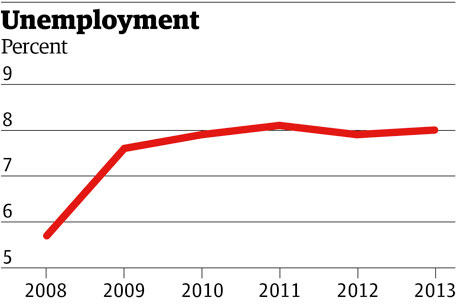Life bans on rogue traders and large company fines as Financial Conduct Authority and Ofgem launch investigations
The European parliament is expected this week to vote through tough new legislation that would allow Brussels – and London – to crack down much harder on rogue traders in financial and energy markets.
The move comes as competition regulators from the European commission widen their inquiry into the oil trading activities of BP and price reporting agency Platts, while a senior Brussels politician urged British financial and energy watchdogs to undertake a deeper investigation into alleged manipulation of the British wholesale gas market.
Arlene McCarthy, vice-chair of the committee on economic and monetary affairs inside the European parliament, said on Sunday she was confident a vote on Wednesday would ensure benchmarks such as the London interbank offered rate (Libor) plus others in the oil and gas sector would be classed as financial instruments, allowing lifetime bans on those trying to rig the markets.
"I am hopeful we will close the loophole in the Libor and energy markets so that regulators in Europe can take appropriate action on abuse. Consumers need to know the prices they pay are fair and I don't want a situation where every time we have a case of manipulation we have to extradite people to the US to face justice [rather than deal with the issue in local courts]," said McCarthy, who is an MEP for the North West of England and chairwoman of the European parliament's committee on internal market and consumer protection.
Under the proposed legislation, Britain and other member states will be able to impose life bans on traders and fine companies 15% of their annual turnover if they are caught abusing the markets. The laws are being brought in after a wave of scandals involving banks manipulating the rates at which they could lend each other money.
But there has also been deep disquiet in Europe about the relatively unregulated British commodity markets after the Guardian published the concerns of a whistleblower, Seth Freedman, from the wholesale gas market about possible manipulation last autumn that triggered an inquiry by energy watchdog Ofgem and the City regulator, the Financial Conduct Authority (FCA).
Fears grew when the competition authorities instigated a series of dawn raids on the offices of BP, Statoil and Platts in May, saying they feared companies may have "colluded in reporting distorted prices to a price reporting agency [PRA] to manipulate the published prices for a number of oil and biofuel products".
Sources in Brussels say the investigators have broadened the scope of their inquiries and have opened up "high level contacts" in the US with the department of justice and the powerful commodity futures trading commission (CFTC).
Alan Duncan, a former oil trader and now international development minister, told the Financial Times last month that the European commission's review was illogical and baseless.
Ofgem and the FCA say they are still in the middle of a preliminary review of the evidence and have yet to decide whether to undertake a full investigation.
"Ofgem continues to look at allegations relating to trading on 28 September 2012, working closely with the Financial Conduct Authority," said an Ofgem spokesman. "We take any allegations of market abuse very seriously. We are also looking at the role of price reporting agencies in relation to the gas and electricity markets and reviewing the information which we have received as part of our call for evidence which closed over the summer."
The FCA declined to comment.
McCarthy said she felt that 10 months on from starting those initial investigations it was time to clarify the situation: "A full investigation is necessary. It is in the public interest because there is not enough transparency and accountability that leaves many people feeling they get ripped off by energy companies.
"If there proves to be nothing there then it will have cleared the air."
Ofgem said it always took seriously its oversight of the energy markets and has received enhanced powers to intervene already after the UK implemented new powers under Brussels-derived wholesale energy market integrity and transparency (Remit) legislation.
A spokesman for the regulator said: "We keep the precise details of our monitoring confidential. But it brings together information on the physical market, trading and other news commentary including any specific reports of suspicious trades we may have received under Remit."
Article Source : http://www.guardian.co.uk
Azure Global’s vision is to be widely recognized as a reputed firm of financial business advisors, achieving real growth for ambitious companies and to become the first choice for F&A outsourcing for accountancy practices and businesses alike and if u want to Setup ur business in United Kingdom then its not difficult in this modern age for more info visit our site Azure Global and join us also On Facebook





